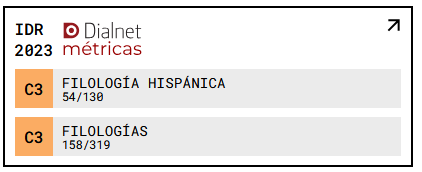Nathanael West y la ética de "Interim"
DOI:
https://doi.org/10.18172/cif.2105Keywords:
Nathanael West, The Day of the Locust, interim ethics, apocalyptic literature,Abstract
Nathanael West’s last novel "The Day of the Locust" has often been labelled as immoral or unethical by modern scholars, due to the characters’ apparent rejection of traditional principles and respectable ideologies. However, when considered from the eschatological perspective, this kind of conduct clearly responds to an ethical system, fairly unknown outside theological circles, but with a long tradition in Western culture: the "interim ethics". This behaviour, commonly rooted in societies with apocalyptic expectations, belittles the value of personal morality and civic duty, supported by a firm belief in an imminent global catastrophe. The result is a state of ethical suspension, easily confused with amorality, where ordinary responsibilities are cancelled and common feelings are trivialized or even completely suppressed. This paper analyses the social and psychological factors that shape the ethical code presented in "The Day of the Locust" in order to demonstrate that they are motivated by a disastrous perception of time which redefines the attitudes of the protagonists and relieves them of their vital exigencies. Thus, it will be explained how West recovers and renews the concept of "interim ethics" so that it reflects the existential anxiety of modern life.Downloads
Download data is not yet available.
Downloads
Published
2013-07-12
How to Cite
Castro, Juan Manuel. “Nathanael West Y La ética De ‘Interim’”. Cuadernos De Investigación Filológica, vol. 31, July 2013, pp. 73-88, doi:10.18172/cif.2105.
Issue
Section
Articles
License
The authors retain copyright of articles and authorize CIF the first publication. They are free to share and redistribute the article without obtaining permission from the publisher as long as they give appropriate credit to the editor and the journal.
Self-archiving is allowed too. In fact, it is recommendable to deposit a PDF version of the paper in academic and/or institutional repositories.
It is recommended to include the DOI number.
This journal is licensed under a Creative Commons Attribution 4.0 International License














